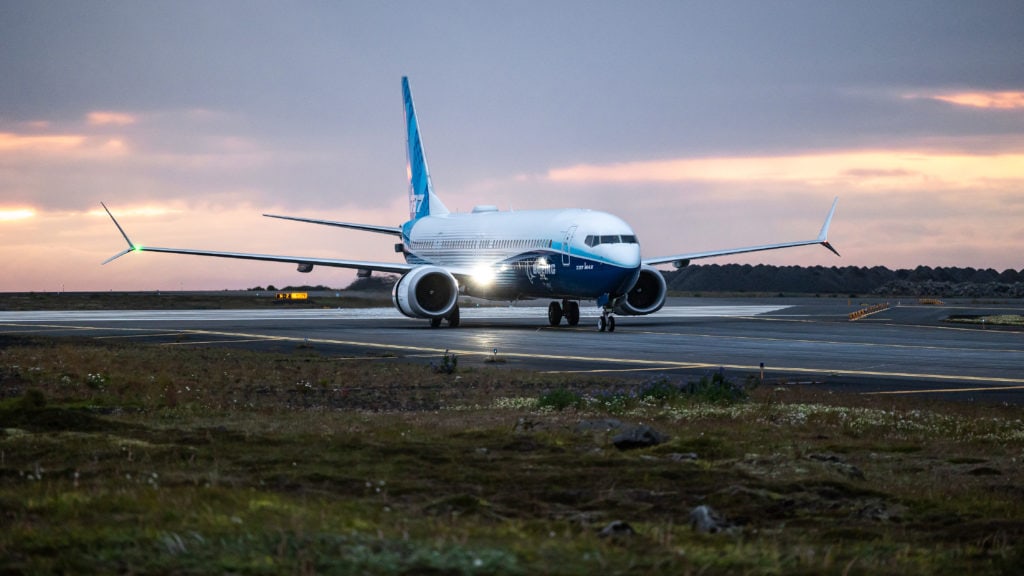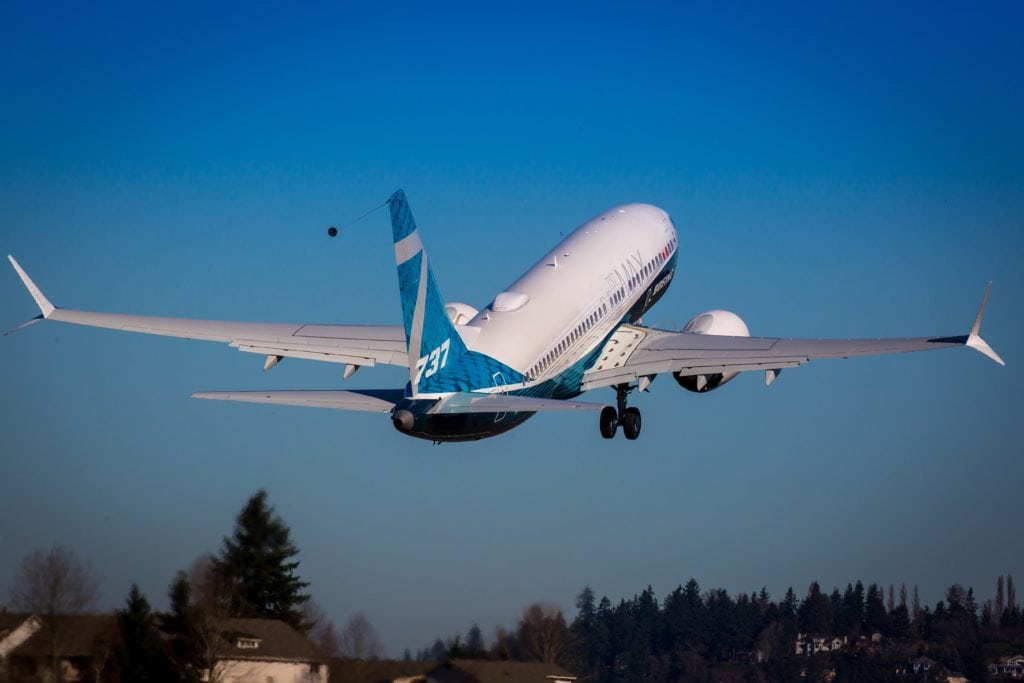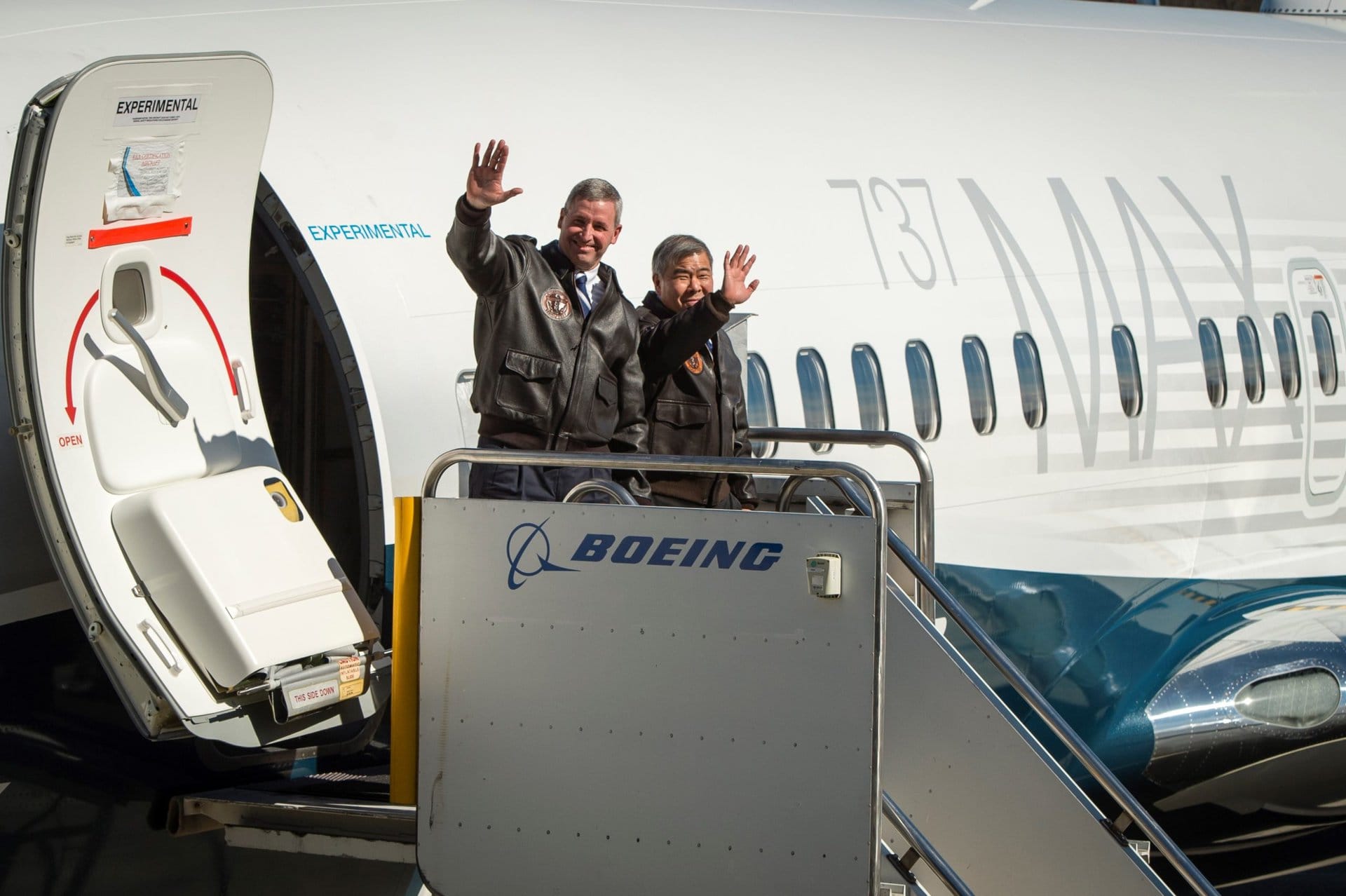After last-minute maneuvering this week, Congress has passed and sent a $1.7 trillion omnibus appropriations bill to President Biden’s desk for the fiscal year 2023, which will fund the federal government for the upcoming year. Included in the legislation are noteworthy measures affecting the travel industry.
Passage of the bill gives Boeing a reprieve for its 737 MAX program with an extension of a deadline for new crew alerting systems. In addition, the law also includes the bipartisan Omnibus Travel and Tourism Act to coordinate a national tourism strategy at the federal level.
The good news for Boeing goes back to the 2020 Aircraft Certification, Safety and Accountability Act, which requires all aircraft certified by the FAA after Dec. 27, 2022, to include updated crew alerting systems.

Photo: Boeing 737 MAX 10 / Courtesy of Boeing Commercial Airplanes
The requirement came in the wake of two fatal accidents involving the 737 MAX in 2018 and 2019. Subsequently, the current fleet of MAX aircraft was cleared to fly by most international aviation authorities—except the Chinese—following a nearly two-year grounding and extensive software and training updates. As a result, Boeing had expected the newer 737 MAX 7 and MAX 10—the smallest and largest variants, respectively—to be certified under those exact requirements.
However, the FAA approval process took longer than expected, bringing certification of the two newer models up against the Dec. 27 deadline.
Without the Congressional extension, the aircraft would have had to undergo an extensive upgrade and lengthy recertification process, placing the future of the new airliners in doubt and jeopardizing the $50 billion in orders for the new jets already on Boeing’s books.

Photo: Boeing 737 MAX 7 First Flight / Courtesy of Boeing Commercial Airplanes
The exemption written into this year’s omnibus spending bill would allow the 737 MAX 7 and MAX 10 to be certified under the pre-2020 rules. But it does require Boeing to outfit the MAX 7 and the entire fleet of MAX 8 and MAX 9 with two fixes designed to improve its flight control system within three years of the MAX 10 certification.
The Boeing 737 MAX 10 is already being flight tested with the updated system on board.
US Tourism Gets a Boost
The massive spending measure also includes the bipartisan Omnibus Travel and Tourism Act, designed to strengthen the industry by creating an Assistant Secretary of Travel and Tourism in the Commerce Department to coordinate a national tourism strategy.
According to a statement from Senator Jacky Rosen (D-NV), chair of the Senate Subcommittee on Tourism, Trade, and Export Promotion, the US is the only G20 country that needs an agency or cabinet-level position in charge of travel and tourism policy.
The legislation also formally authorizes the US Travel and Tourism Advisory Board, allows the collection of data on domestic travel and tourism, mandates the development of a national travel and tourism strategy every ten years, and creates a report on the effects of the pandemic on the travel and tourism industry.

Nantucket, Massachusetts / Photo: Oleg Albinsky/E+/Getty Images
Many organizations in the travel and tourism industry, including the American Society of Travel Advisors, the US Travel Association, the American Hotel and Lodging Association, and the Global Business Travel Association, have endorsed the initiative.
“This is a great outcome for travelers and the travel industry alike as the US now joins every G20 nation in prioritizing the travel experience,” said Geoff Freeman, president and CEO of the US Travel Association. “The Omnibus Travel and Tourism Act enhances federal leadership for the travel industry by establishing a new Assistant Secretary to elevate travel issues and the industry’s positive impact on the US economy.”
Suzanne Neufang, CEO of the Global Business Travel Association, cited the importance of a national strategy for travel. “The industry continues to need additional support and resources to continue its recovery,” Neufang said, calling it “a positive step in restoring global business travel and meetings in the US and abroad.”




